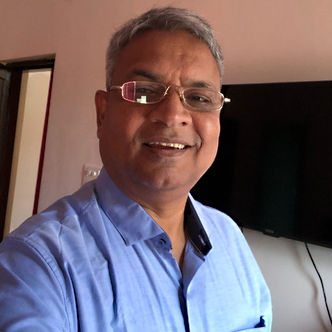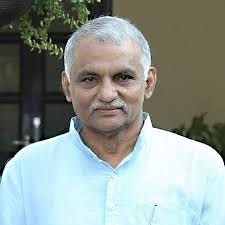First International Symposium on Tribal Health
Reach Us
Address
Dr. Kiran Tawalare,
First International Symposium on Tribal Health
MUHS Regional Center,
Near API Hall ,
Govt. Medical College premises,
Hanuman Nagar ,
Nagpur
Maharashtra
440003.
Phone No : +91- 0712 2752929
Mobile No. : +91- 9226209022

Maharashtra University of Health Sciences, Nashik
in collaboration with All India Institute of Medical Sciences, Nagpur presents
First International Symposium on Tribal Health
at Nagpur, Maharashtra
31st January 2025 - 2nd February 2025

Empowering Tribal Health:
Innovate, Inspire, Impact at Our Global Symposium!

Where
Auditorium,
All India Institute of Medical Sciences (AIIMS),
MIHAN, Sumthana, Dahegaon,
Nagpur,
Maharashtra
PIN 441108

About Us

All India Institute of Medical Sciences (AIIMS), Nagpur
The All India Institute of Medical Sciences [AIIMS] was designed to serve as a nucleus for nurturing excellence in all aspects of health and wellness throughout India. AIIMS are a group of autonomous public medical institutes that have been declared by an Act of Parliament 1956 as “Institute of National Importance”. All India Institute of Medical Sciences, Nagpur is one among the four AIIMS announced during the budget speech 2014-15 under Pradhan Mantri Swasthya Suraksha Yojna (PMSSY). The Foundation stone for the institute was laid by Hon’ble Prime Minister of India, Shri Narendra Modi and Hon’ble Chief Minister of Maharashtra, Shri Devendra Fadnavis at Sector 20, MIHAN on 14th April 2017. Union Cabinet Minister for Road Transport and Highway and Shipping (GoI), Shri Nitin Gadkari, and several other dignitaries graced the occasion. The primary objective of AIIMS is “correcting regional imbalances in the availability of affordable/reliable tertiary healthcare services and also to augment facilities for quality medical education in the country”. With a campus spanning over 150 acres of land in the Special Economic Zone, MIHAN, the institute is committed to its mission of providing the highest levels of patient satisfaction, healthcare, safety, dignity and rights through evidence-based clinical practices of the highest standard and transparent management processes. Working tirelessly, within a short span of time, it has been unfaltering in its efforts to provide the best medical education and training with all modern facilities and is progressing towards becoming a Center of Excellence in teaching, patient care, and research. Currently, students for MBBS, post-graduation, and Ph.D courses are enrolled with the institute. In the dire times of COVID 19 pandemic, AIIMS Nagpur stepped up to the need of the society by setting up sample collection & testing facilities as well as indoor and intensive care facility of approx. 500 beds in record time. Specialists in the dedicated COVID triage/ screening team and COVID C.A.R.E.S (connect, assist, reassure, empathize, support) are providing 24 x 7 assistance and wholistic management (physical & mental health support services) to COVID affected individuals & their families. Further, facilities for the diagnosis, management & rehabilitation of post covid sequelae and complications, including mucormycosis have also been set up. The facility in the campus includes: Fully operational OPD block AYUSH Dharamshala COVID wards Fully equipped Lecture halls Practical labs of pre-clinical departments Dissection hall 24 X 7 Library (both central and e-library) Museums including one-stop comprehensive learning “state of art” museum by Department of Forensic Medicine Hostel accommodation and security Mess Facility Sports area (both indoor and outdoor) Residential quarters for staff AIIMS Nagpur offers full-time undergraduate degree program MBBS and postgraduation in selected subjects. It has an innovative curriculum tailored to meet the current healthcare needs of the country. Keeping in mind that education is the holistic development of one’s personality & includes development of one’s knowledge, attitude & skills, various programs have been initiated, for e.g., the mentor-mentee program to provide psychological, professional, and personal support to students. The Institute is actively engaged in student’s welfare as per the recommendations of the Radhakrishnan Report (1948) and the Education Commission (1960). In addition, the institute aims to develop world-class facilities to achieve excellence in the field of medical research and is actively engaged in developing infrastructure for carrying out meaningful research. The institution is committed to excellence in healthcare and quality education in the region and beyond.
Maharashtra University of Health Sciences (MUHS),
Nasik
The Maharashtra University of Health Sciences (MUHS) was established by the state government on June 3, 1998, in Nashik to ensure systematic instruction, teaching, training, and research in modern and Indian medicine. Initially located on Gangapur Road, it moved to its own building on Dindori Road in 2004. MUHS aims to provide balanced growth and uniformity in medical education across Maharashtra. Celebrated annually on June 10, the university serves both teaching and affiliating roles, guided by a strategic agenda to elevate health science education and services in the state.
Terms & Condition
Shipping & Cancellation Policy
Privacy Policy
Site designed and maintained by Satyajit Tambe.

Our Mission

“Organizing a global symposium on tribal health, we wish to bring together people who work to reach the unreached for equitable healthcare and the often marginalised tribal population across borders. Through our mission, Tribal ERA—Education, Research, and Awareness—we are committed to transforming lives and fostering a healthier future for Indigenous communities."

Lt. Gen. Madhuri Kanitkar (Retd), PVSM, AVSM, VSM
Hon’ble Vice-Chancellor of MUHS, Nashik

The Organisers

Lt. Gen Madhuri Kanitkar (Retd.)
Vice Chancellor, MUHS Nashik
PVSM, AVSM, VSM
Chief Patron
Co - Chairperson

Prof. Dr. Milind Nikumbh
Pro Vice Chancellor, MUHS Nashik

Dr. Prashant P Joshi
Executive Director, AIIMS Nagpur
Executive Advisors

Dr. Ajeet Gopchade
Paediatrician, Member - AIIMS, Member of Parliament (Rajya Sabha)

Dr. Maneesha Kothekar
Member Management Council, MUHS Nashik

Dr. Dilip Kadam
Member Academic Council, MUHS Nashik

Dr. Ashutosh Gupta
Member Senate,
MUHS Nashik

Dr. Mrunal Patil
Dean Academics, MUHS Nashik

Dr. Mrunal Phatak
Dean Academics
Professor & HoD, Physiology
AIIMS, Nagpur
Secretary

Dr. Sanjeev Chaudhary
Chair Professor, Chair of Excellence,
Department of Tribal Health, MUHS Nagpur
Joint Secretary & Treasurer

Dr. Kiran Tawalare
Associate Professor -
Shri Ayurved Mahavidyalaya, Nagpur
Regional Coordinator, Department of Tribal Health, MUHS Nagpur
BOR Member, MUHS Nashik
Joint Secretary

Dr. Mahendra Patait
Head of University Research Department,
MUHS Nashik

Dr. Rajashree Khot
Associate Professor,
AIIMS Nagpur
Organizing Steering Committee

Dr. Rajendra Bangal
Registrar, MUHS Nashik
Chairman

Dr.Meenakshi Girish
Professor, Pediatrics , AIIMS, Nagpur
Co-Chairman

Dr. Ajeet Saoji
Professor & Head of Research Wing,
Dept. of Community Medicine, NKP Salve Institute of Medical Sciences and Research Center
Co-Chairman
Conference Administration

Shri Sandip Rathod
Assistant Registrar, MUHS Nashik
Finance & Accounting

Shri B. J. Sonkamble
Chief Accounts & Finance Officer,
MUHS Nashik
Solicitor

Adv. Sandip Kulkarni
MUHS, Nashik
Conference Secretariat

Dr. Vivek Bhosale
OSD, Regional Centre, MUHS Nagpur


Padmashree Dr. Vikas Mahatme
Ophthalmologist &
Former Member of Parliament (Rajya Sabha)

Shri Ravindra H. Thakare
IAS,
Additional Tribal Commissioner, Nagpur

Dr. Dilip Gode
Laparoscopic Surgeon,
Former Vice Chancellor (DMIHER) & Former Chair-Professor Tribal Health ,MUHS , Nagpur
Patrons


“The Urgency of Tribal Health: Addressing Critical Challenges”
Tribal communities often face unique health challenges due to their remote locations, limited access to healthcare, and socio-economic barriers. These populations are disproportionately affected by diseases such as malnutrition, infectious diseases, and chronic conditions like diabetes and hypertension. The lack of healthcare infrastructure and trained medical personnel exacerbates these issues, leading to higher morbidity and mortality rates. Addressing tribal health is not just a matter of equity but also a crucial step towards achieving overall public health goals. By focusing on tribal health, we can ensure that these underserved communities receive the care they need, ultimately improving their quality of life and reducing health disparities.

“BLOSSOM: A Vision Born from Necessity”
The idea for Project BLOSSOM emerged from the pressing need to understand and address the health issues faced by tribal populations. Initiated by the Maharashtra University of Health Sciences, this project aimed to conduct comprehensive health screenings in tribal villages across Vidarbha. The project acronym stands for Breast cancer, Liver disease, Osteoporosis, Sickle cell, Sexually transmitted diseases, Oral cancer, and Malnutrition, reflecting the diverse health challenges it sought to address. By gathering extensive data through clinical investigations, Project BLOSSOM aimed to create a robust foundation for targeted

“Key Findings from Project BLOSSOM: A Comprehensive Health Survey”
Project BLOSSOM’s extensive health screenings revealed critical insights into the health status of tribal communities. The project covered 18 villages with an 85% tribal population, conducting 33 clinical investigations on over 6,300 individuals. The findings highlighted high prevalence rates of malnutrition, infectious diseases, and chronic conditions. The data underscored the urgent need for improved healthcare infrastructure and targeted interventions. These findings serve as a wake-up call for policymakers and healthcare providers, emphasizing the necessity of focused efforts to address the health disparities in tribal areas.

“Global Symposium on Tribal Health: Shaping Future Policies”
Building on the insights from Project BLOSSOM, the First International Symposium on Tribal Health aims to bring together global experts to discuss innovative solutions for improving healthcare delivery in tribal areas. This symposium will provide a platform for sharing knowledge, experiences, and best practices, fostering collaboration among stakeholders. The goal is to drive policy-making that addresses the unique health challenges faced by tribal communities. By leveraging diverse perspectives and expertise, we can develop effective strategies to enhance healthcare access and outcomes for these underserved populations.
Our Motivation
What can you expect at the Symposium?

Engage with international and national experts sharing insights into cutting-edge research, innovative practices, and the latest advancements in healthcare delivery for tribal communities.
Global Insights on Tribal Health

The symposium will bring together 700+ professionals, including doctors, medical students, and researchers. This is a unique chance to connect with peers, share experiences, and build collaborations that can drive future initiatives in tribal health.
Networking Opportunities

With a lineup of 20+ distinguished speakers from around the globe, attendees can look forward to a series of thought-provoking presentations and insightful Question & Answers sessions. These sessions will cover a wide range of topics, offering valuable knowledge and practical solutions to improve health outcomes in tribal areas.
Interactive Sessions & QnA


“Organizing a global symposium on tribal health, we wish to bring together people who work to reach the unreached for equitable healthcare and the often marginalised tribal population across borders. Through our mission, Tribal ERA—Education, Research, and Awareness—we are committed to transforming lives and fostering a healthier future for Indigenous communities."

Lt. Gen. Madhuri Kanitkar (Retd), PVSM, AVSM, VSM
Hon’ble Vice-Chancellor of MUHS, Nashik

Our Mission


“The Urgency of Tribal Health: Addressing Critical Challenges”
Tribal communities often face unique health challenges due to their remote locations, limited access to healthcare, and socio-economic barriers. These populations are disproportionately affected by diseases such as malnutrition, infectious diseases, and chronic conditions like diabetes and hypertension. The lack of healthcare infrastructure and trained medical personnel exacerbates these issues, leading to higher morbidity and mortality rates. Addressing tribal health is not just a matter of equity but also a crucial step towards achieving overall public health goals. By focusing on tribal health, we can ensure that these underserved communities receive the care they need, ultimately improving their quality of life and reducing health disparities.

“BLOSSOM: A Vision Born from Necessity”
The idea for Project BLOSSOM emerged from the pressing need to understand and address the health issues faced by tribal populations. Initiated by the Maharashtra University of Health Sciences, this project aimed to conduct comprehensive health screenings in tribal villages across Vidarbha. The project acronym stands for Breast cancer, Liver disease, Osteoporosis, Sickle cell, Sexually transmitted diseases, Oral cancer, and Malnutrition, reflecting the diverse health challenges it sought to address. By gathering extensive data through clinical investigations, Project BLOSSOM aimed to create a robust foundation for targeted

“Key Findings from Project BLOSSOM: A Comprehensive Health Survey”
Project BLOSSOM’s extensive health screenings revealed critical insights into the health status of tribal communities. The project covered 18 villages with an 85% tribal population, conducting 33 clinical investigations on over 6,300 individuals. The findings highlighted high prevalence rates of malnutrition, infectious diseases, and chronic conditions. The data underscored the urgent need for improved healthcare infrastructure and targeted interventions. These findings serve as a wake-up call for policymakers and healthcare providers, emphasizing the necessity of focused efforts to address the health disparities in tribal areas.

“Global Symposium on Tribal Health: Shaping Future Policies”
Building on the insights from Project BLOSSOM, the First International Symposium on Tribal Health aims to bring together global experts to discuss innovative solutions for improving healthcare delivery in tribal areas. This symposium will provide a platform for sharing knowledge, experiences, and best practices, fostering collaboration among stakeholders. The goal is to drive policy-making that addresses the unique health challenges faced by tribal communities. By leveraging diverse perspectives and expertise, we can develop effective strategies to enhance healthcare access and outcomes for these underserved populations.
Our Motivation
What you can expect at the Symposium?

Engage with international and national experts sharing insights into cutting-edge research, innovative practices, and the latest advancements in healthcare delivery for tribal communities.
Global Insights on Tribal Health

The symposium will bring together 700+ professionals, including doctors, medical students, and researchers. This is a unique chance to connect with peers, share experiences, and build collaborations that can drive future initiatives in tribal health.
Networking Opportunities

With a lineup of 20+ distinguished speakers from around the globe, attendees can look forward to a series of thought-provoking presentations and insightful Question & Answers sessions. These sessions will cover a wide range of topics, offering valuable knowledge and practical solutions to improve health outcomes in tribal areas.
Interactive Sessions & QnA


Lt. Gen Madhuri Kanitkar (Retd.)
Vice Chancellor, MUHS Nashik
PVSM, AVSM, VSM
Chief Patron
The Organisers
Co - Chairperson

Prof. Dr. Milind Nikumbh
Pro Vice Chancellor, MUHS Nashik

Dr. Prashant P Joshi
Executive Director,
AIIMS Nagpur
Secretary

Dr. Sanjeev Chaudhary
Chair Professor, Chair of Excellence,
Department of Tribal Health, MUHS Nagpur
Joint Secretary & Treasurer

Associate Professor -
Shri Ayurved Mahavidhlaya, Nagpur
Regional Coordinator, Department of Tribal Health, MUHS Nagpur
BOR Member, MUHS Nashik
Dr. Kiran Tawalare
Conference Administration

Shri Sandip Rathod
Assistant Registrar, MUHS Nashik
Organizing Steering Committee

Dr. Rajendra Bangal
Registrar, MUHS Nashik
Chairman

Dr.Meenakshi Girish
Professor, Pediatrics , AIIMS, Nagpur
Co-Chairman

Dr. Ajeet Saoji
Professor & Head of Research Wing ,
Dept. of Community Medicine,
NKP Salve Institute of Medical Sciences and Research Center
Co-Chairman
Finance & Accounting

Shri Bodhiratna Sonkamble
Chief Accounts & Finance Officer,
MUHS Nashik
Solicitor

Adv. Sandip Kulkarni
MUHS, Nashik
Conference Secretariat

Dr. Vivek Bhosale
OSD, Regional Centre, MUHS Nagpur
Joint Secretary

Dr. Mahendra Patait
Head of University Research Department,
MUHS Nashik

Dr. Rajashree Khot
Associate Professor,
AIIMS Nagpur
Executive Advisors

Dr. Ajeet Gopchode
Paediatrician,
Member - AIIMS, Member of Parliament (Rajya Sabha)

Dr. Maneesha Kothekar
Member Management Council, MUHS Nashik

Dr. Dilip Kadam
Member Academic Council, MUHS Nashik

Dr. Ashutosh Gupta
Member Senate,
MUHS Nashik

Dr. Mrunal Patil
Dean Academics, MUHS Nashik

Dr. Mrunal Phatak
Dean Academics
Professor & HoD, Physiology
AIIMS, Nagpur


Padmashree Dr. Vikas Mahatme
Ophthalmologist &
Former Member of Parliament (Rajya Sabha)

Shri Ravindra H. Thakare
IAS,
Additional Tribal Commissioner, Nagpur

Dr. Dilip Gode
Laparoscopic Surgeon,
Former Vice Chancellor (DMIHER) & Former Chair-Professor Tribal Health ,MUHS , Nagpur
Patronage

About Us

All India Institute of Medical Sciences (AIIMS), Nagpur
The All India Institute of Medical Sciences [AIIMS] was designed to serve as a nucleus for nurturing excellence in all aspects of health and wellness throughout India. AIIMS are a group of autonomous public medical institutes that have been declared by an Act of Parliament 1956 as “Institute of National Importance”. All India Institute of Medical Sciences, Nagpur is one among the four AIIMS announced during the budget speech 2014-15 under Pradhan Mantri Swasthya Suraksha Yojna (PMSSY). The Foundation stone for the institute was laid by Hon’ble Prime Minister of India, Shri Narendra Modi and Hon’ble Chief Minister of Maharashtra, Shri Devendra Fadnavis at Sector 20, MIHAN on 14th April 2017. Union Cabinet Minister for Road Transport and Highway and Shipping (GoI), Shri Nitin Gadkari, and several other dignitaries graced the occasion. The primary objective of AIIMS is “correcting regional imbalances in the availability of affordable/reliable tertiary healthcare services and also to augment facilities for quality medical education in the country”. With a campus spanning over 150 acres of land in the Special Economic Zone, MIHAN, the institute is committed to its mission of providing the highest levels of patient satisfaction, healthcare, safety, dignity and rights through evidence-based clinical practices of the highest standard and transparent management processes. Working tirelessly, within a short span of time, it has been unfaltering in its efforts to provide the best medical education and training with all modern facilities and is progressing towards becoming a Center of Excellence in teaching, patient care, and research. Currently, students for MBBS, post-graduation, and Ph.D courses are enrolled with the institute. In the dire times of COVID 19 pandemic, AIIMS Nagpur stepped up to the need of the society by setting up sample collection & testing facilities as well as indoor and intensive care facility of approx. 500 beds in record time. Specialists in the dedicated COVID triage/ screening team and COVID C.A.R.E.S (connect, assist, reassure, empathize, support) are providing 24 x 7 assistance and wholistic management (physical & mental health support services) to COVID affected individuals & their families. Further, facilities for the diagnosis, management & rehabilitation of post covid sequelae and complications, including mucormycosis have also been set up. The facility in the campus includes: Fully operational OPD block AYUSH Dharamshala COVID wards Fully equipped Lecture halls Practical labs of pre-clinical departments Dissection hall 24 X 7 Library (both central and e-library) Museums including one-stop comprehensive learning “state of art” museum by Department of Forensic Medicine Hostel accommodation and security Mess Facility Sports area (both indoor and outdoor) Residential quarters for staff AIIMS Nagpur offers full-time undergraduate degree program MBBS and postgraduation in selected subjects. It has an innovative curriculum tailored to meet the current healthcare needs of the country. Keeping in mind that education is the holistic development of one’s personality & includes development of one’s knowledge, attitude & skills, various programs have been initiated, for e.g., the mentor-mentee program to provide psychological, professional, and personal support to students. The Institute is actively engaged in student’s welfare as per the recommendations of the Radhakrishnan Report (1948) and the Education Commission (1960). In addition, the institute aims to develop world-class facilities to achieve excellence in the field of medical research and is actively engaged in developing infrastructure for carrying out meaningful research. The institution is committed to excellence in healthcare and quality education in the region and beyond.
Maharashtra University of Health Sciences (MUHS),
Nasik
The Maharashtra University of Health Sciences (MUHS) was established by the state government on June 3, 1998, in Nashik to ensure systematic instruction, teaching, training, and research in modern and Indian medicine. Initially located on Gangapur Road, it moved to its own building on Dindori Road in 2004. MUHS aims to provide balanced growth and uniformity in medical education across Maharashtra. Celebrated annually on June 10, the university serves both teaching and affiliating roles, guided by a strategic agenda to elevate health science education and services in the state.
Announcing'
TEER - 25 Award
Showcase your innovative research in tribal healthcare with the TEER-25 Award! Open to teachers, students, researchers, and healthcare professionals, this award celebrates groundbreaking solutions for remote tribal areas. Submit your abstracts by 31st December 2024 and be part of this transformative event!

Showcase your innovative research in tribal healthcare with the TEER-25 Award! Open to teachers, students, researchers, and healthcare professionals, this award celebrates groundbreaking solutions for remote tribal areas. Submit your abstracts by 31st December 2024 and be part of this transformative event!

Announcing'
TEER - 25 Award









































































